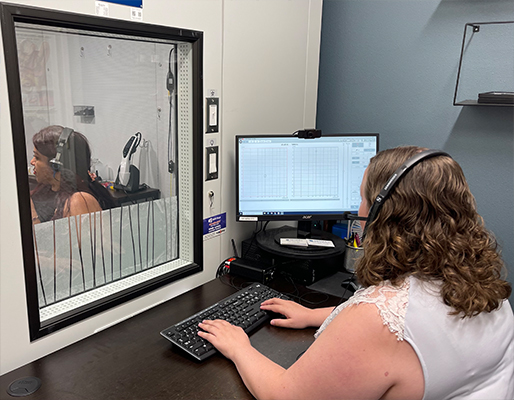Evaluations for Auditory Processing Disorder in Wenatchee, WA
Central Auditory Processing Disorder (CAPD) is a condition that affects how the brain processes and interprets auditory information. Signs and symptoms of Auditory Processing Disorder vary from person to person. Many of these symptoms can often be associated with other commonly known disorders, such as ADD/ADHD, Autism Spectrum Disorder and speech and/or language disorders. CAPD often presents in childhood, around the ages of 5-12. A child with CAPD often appears to have a combination of many symptoms.
What is Auditory Processing Disorder?
Auditory Processing Disorder is a neurological condition that affects the way the brain interprets and processes auditory information. It’s not a problem with hearing, but rather with how the brain recognizes and understands sounds. Individuals with APD may have normal hearing, yet they struggle to make sense of the sounds they hear.

Symptoms of Auditory Processing Disorder
Some of the most frequently reported symptoms of CAPD include:
- Significant difficulty understanding speech, especially in the presence of background noise
- Difficulty following multi-step directions that are presented verbally, without visual cues
- Easily distracted by loud or spontaneous (sudden) sounds
- Difficulty attending to long lectures or other long periods of listening
- Difficulty remembering and/or effectively summarizing information presented verbally
- Difficulty reading, spelling, and/or writing when compared to their peers (performs consistently below grade level)
- Trouble following abstract thoughts or ideas
- Delayed or misunderstanding of jokes, idioms, and figurative language
How to Evaluate for Auditory Processing Disorder
An evaluation is essential for identifying and diagnosing CAPD. There are several parts to the evaluation.
Initial Assessment:
- Obtaining a comprehensive case history, including information about developmental milestones, academic performance, and listening difficulties.
- Conducting an interview with the individual and their parents/caregivers to gather information about their auditory symptoms and concerns.
- Screening for hearing loss to rule out any peripheral hearing issues.
Behavioral Assessments:
- Administering standardized tests that assess different aspects of auditory processing, such as sound localization, auditory discrimination, auditory sequencing, and temporal processing.
- Evaluating speech perception abilities in noise and in challenging listening environments.
- Assessing auditory memory and auditory attention skills.
Audiological Assessment:
- Conducting a comprehensive audiological evaluation, including pure-tone audiometry, speech audiometry, and tympanometry.
Language and Communication Evaluation:
- Assessing the individual’s receptive and expressive language skills to determine if there are any underlying language difficulties that may contribute to auditory processing challenges.
- Evaluating reading and writing abilities to identify any language-based learning difficulties.
Other Assessments:
- Vision screening to rule out any visual impairments that may impact auditory processing.
- Cognitive assessment to evaluate overall cognitive abilities and identify any underlying cognitive processing issues.
- Consultation with other professionals, such as psychologists or educators, to gather additional information and perspectives.
Evaluating Central Auditory Processing Disorder involves a comprehensive assessment process that includes behavioral, audiological, language, and cognitive assessments. This multidimensional evaluation helps identify the specific areas of auditory processing difficulty and provides a basis for diagnosis and appropriate intervention planning. Early identification and intervention can significantly improve outcomes for individuals with CAPD.

